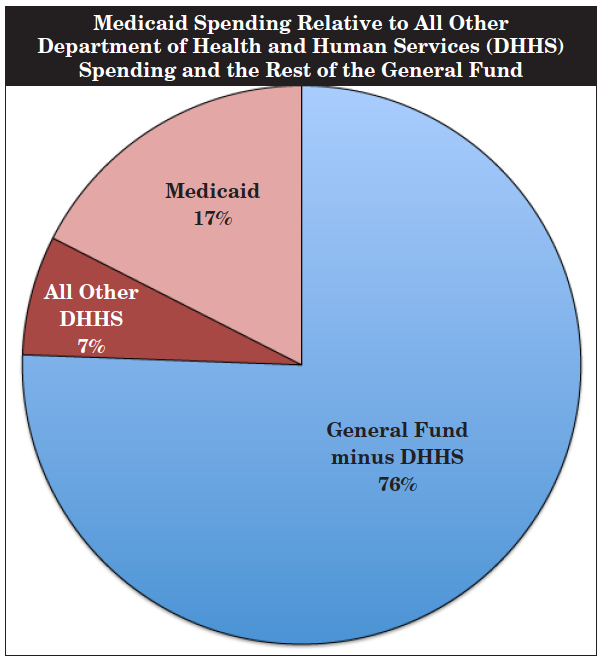Medicaid is one of the largest expenditures in state government. In this year’s budget Medicaid accounts for 18 percent of the General Fund and 72 percent of the Health and Human Services budget. A detailed assessment of the Medicaid budget suggested that existing forecasting methods, which were based on previous years’ actual spending levels, would not be accurate enough for the upcoming fiscal year. Budget writers found that multiple extenuating factors were affecting the cost of the program, thereby impeding their ability to budget accurately for Medicaid without fear of a shortfall in the upcoming year.
accounts for 18 percent of the General Fund and 72 percent of the Health and Human Services budget. A detailed assessment of the Medicaid budget suggested that existing forecasting methods, which were based on previous years’ actual spending levels, would not be accurate enough for the upcoming fiscal year. Budget writers found that multiple extenuating factors were affecting the cost of the program, thereby impeding their ability to budget accurately for Medicaid without fear of a shortfall in the upcoming year.
Providers of medical services across North Carolina have submitted claims for reimbursement for the cost of providing health care to Medicaid patients, which has produced a large backlog of unpaid claims. The exact sum of unpaid claims is difficult to estimate. There has also been a large increase in enrollment for Medicaid, with a backlog of applications due to changes to federal regulations and the implementation of the Patient Protection and Affordable Care Act (Obamacare). Shockingly, there is no consensus on the exact cost involved with each enrollee to the program.
Both the backlog of unpaid claims and increase in enrollment have caused uncertainty with the final budget figure for Medicaid. To be cautious, legislators decided to create a Medicaid contingency fund of $186.4 million for any unexpected shortfalls.


